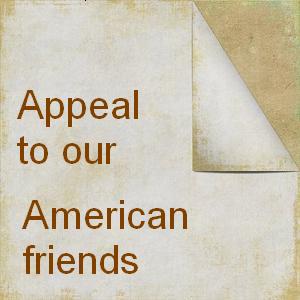 South Africa received the worst possible rating on several governance aspects in an independent peer review report released on Tuesday.
South Africa received the worst possible rating on several governance aspects in an independent peer review report released on Tuesday.
The country's police "force" and the government's handling of xenophobia, crime and corruption are some of the criticisms in the document, entitled, "Implementing the African Peer Review Mechanism (APRM): Views from Civil Society".
President Jacob Zuma and Parliament also came under fire.
Threat to press freedom
Under a category on protection of the media, it warns of threats to press freedom.
"Recommendations frequently appeal for better implementation of existing legislation, acknowledge the need for participatory governance, and many call on civil society to accept its share of responsibility," reads a summary of the report.
It was released by the APRM monitoring project, which is jointly run by the SA Institute of International Affairs, the Centre for Policy Studies and the Africa Governance, Monitoring and Advocacy Project.
The report gives South Africa an "orange" rating in most categories, meaning that "some progress had been achieved on addressing the issue".
The report calls for a judicial inquiry into "allegations of criminality, corruption, inappropriate political interference, nepotism and maladministration occurring within the SAPS".
It warns that appeals by some politicians for the police to act forcefully against criminals were "tough, even unconstitutional rhetoric".
"Temper the hardline, militant rhetoric around crime, and emphasise the importance of the rule of law and the Bill of Rights in the Constitution," it suggests.
It calls for crime statistics to be released more regularly, instead of just once a year.
State and party lines are blurred
The government received the worst possible rating, red, for "an element of denialism" about xenophobia, state-party separation and relationships, cadre deployment and politicisation of institutions and regulating private funding to political parties.
A red rating means "no progress has been achieved on addressing the issue; or very little progress has been achieved and the government does not seem to be on track to complete it in the near future".
"The president should provide particular leadership in making party-state distinctions. Holding office for the entire country, the president needs to guard against the commandeering of state resources for party ends," the report reads.
"The distinction between the state and the political party has become blurred."
Poverty, unemployment and corruption also received red ratings.
"Given the perceptions of corruption in South Africa and that government did not follow through with the APRM’s recommendations on protecting whistleblowers, the evaluating group felt that a red rating was justified."
Parliament was asked to improve reports from committees and "upgrade the quality of debate". A policy on attendance for MPs was also needed.
Room for improvement
According to the report Parliament needed to be "more conscientious in evaluating and processing legislation".
"After passing legislation, Parliament needs to monitor its operation. As a part of this process, the objectives of the legislation need to be clearly spelled out to enable such monitoring."
Other contentious issues such as racism, land reform, black economic empowerment and service delivery received orange ratings, with warnings that there was room for improvement.
On land reform, the report notes: "Although much progress has been achieved, completion is still far away. The experts on land reform in the evaluating team felt that given the overall status of the issue, a red rating should be awarded.
"However, other participants argued that a green rating should be awarded, based on the progress achieved. Therefore, an orange rating was awarded as a compromise."
The only green rating was for holding successful elections.
Although there was a category called "access to information and protection of the media", no rating was given because the media had not been covered in previous reports.
It however notes that access to information and media freedom are threatened by plans to establish a media tribunal and the proposed protection of information bill.






